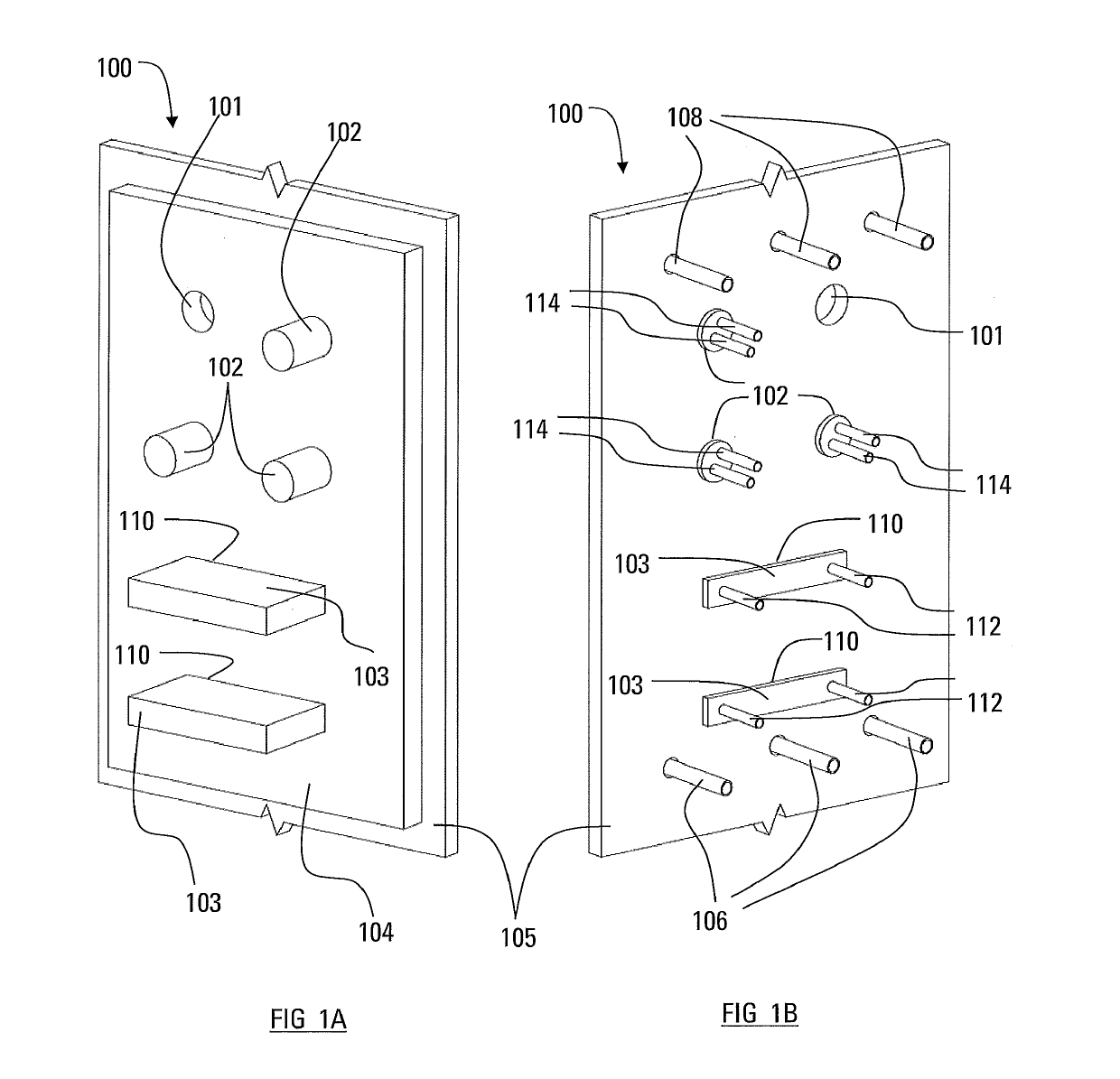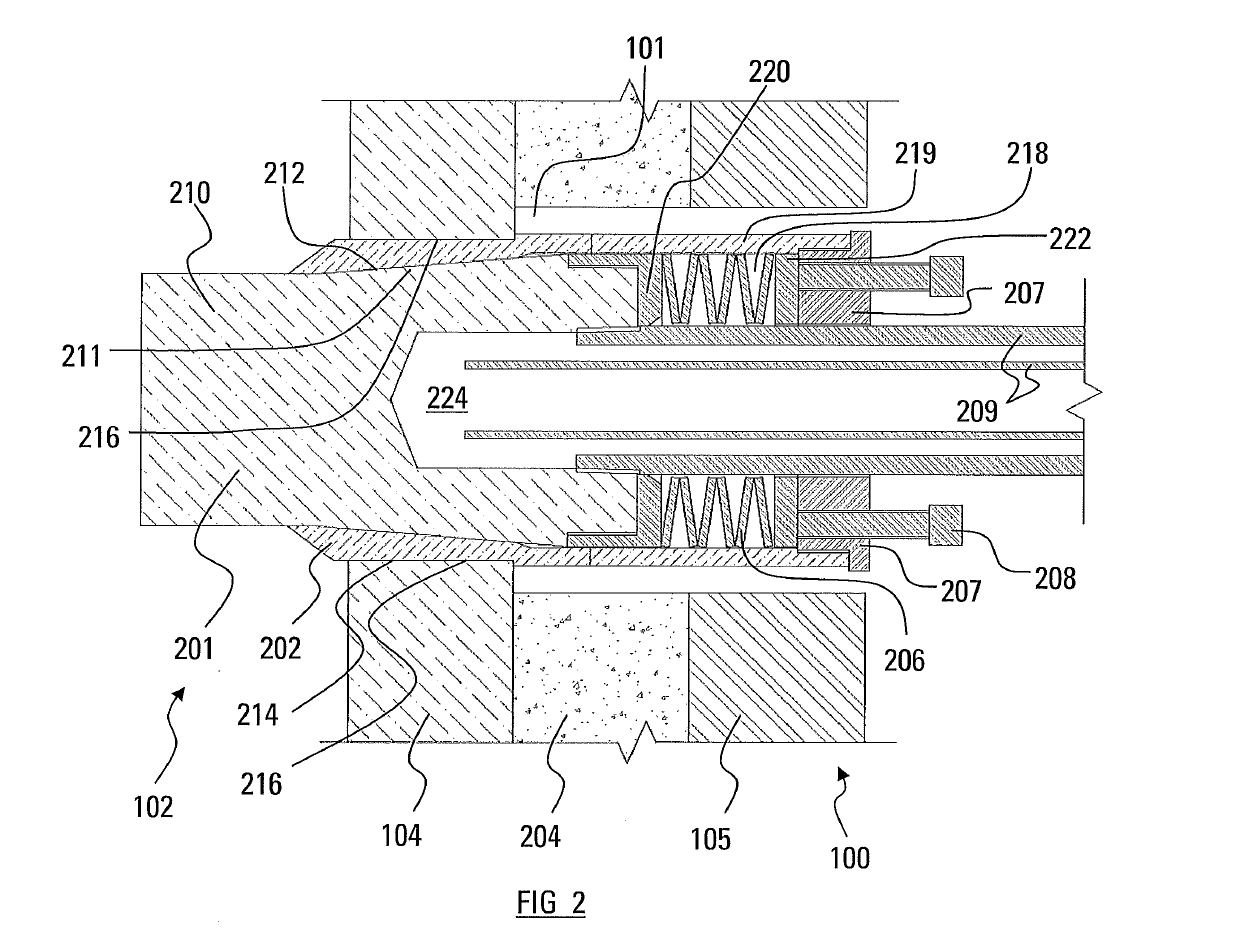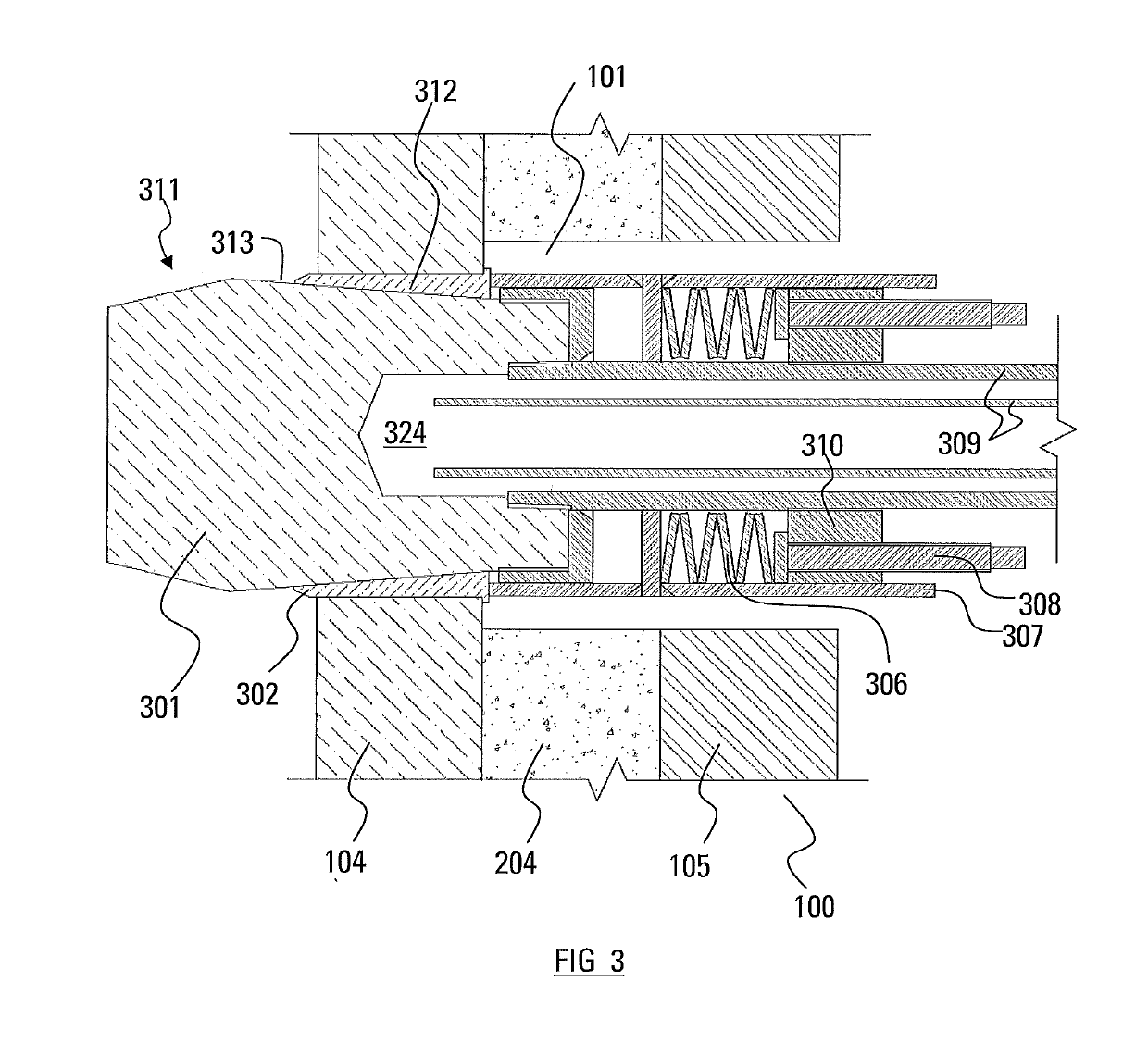Furnace cooling system with thermally conductive joints between cooling elements
a cooling system and cooling element technology, applied in the field of furnace cooling systems, can solve the problems of large volume, large footprint, and relatively low heat removal capacity of plate coolers, and achieve the effect of reducing the number of cooling elements
- Summary
- Abstract
- Description
- Claims
- Application Information
AI Technical Summary
Benefits of technology
Problems solved by technology
Method used
Image
Examples
Embodiment Construction
)
[0020]Recently, vertically oriented stave-type cooling elements have replaced plate-type cooling elements because the stave-type cooling elements are typically less expensive, can remove more heat and are thinner. A thinner cooling element leaves more interior volume in the furnace and allows corresponding increases in production. However, in many installations, stave-type cooling elements have become damaged within 10 years of installation from excessive abrasive wear of the interior hot-face. The shorter life of stave-type cooling elements, relative to plate coolers, can be, at least partially, attributed to their reduced ability to retain a protective layer of stagnant burden on the front surface of the cooler, i.e., the hot surface exposed to the interior of the furnace. This results in increased wear and thermal cycling, both of which can shorten the life of the cooler.
[0021]Stave designs incorporating protruding ledges or cylinders to retain accretion have been developed to b...
PUM
| Property | Measurement | Unit |
|---|---|---|
| thermal conductance | aaaaa | aaaaa |
| thermally conductive | aaaaa | aaaaa |
| thermally conductive pressure | aaaaa | aaaaa |
Abstract
Description
Claims
Application Information
 Login to View More
Login to View More - R&D
- Intellectual Property
- Life Sciences
- Materials
- Tech Scout
- Unparalleled Data Quality
- Higher Quality Content
- 60% Fewer Hallucinations
Browse by: Latest US Patents, China's latest patents, Technical Efficacy Thesaurus, Application Domain, Technology Topic, Popular Technical Reports.
© 2025 PatSnap. All rights reserved.Legal|Privacy policy|Modern Slavery Act Transparency Statement|Sitemap|About US| Contact US: help@patsnap.com



